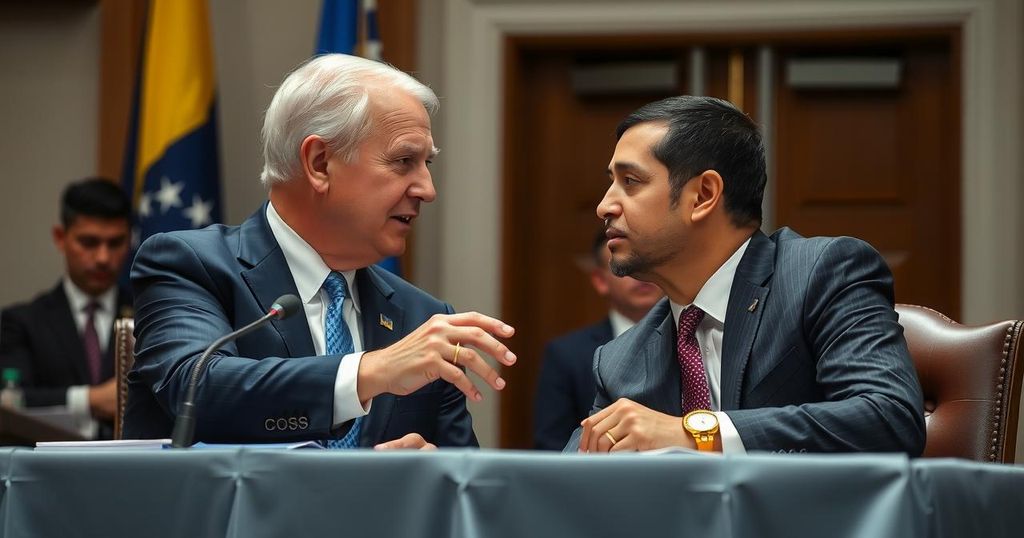President Biden is set to meet Venezuelan opposition leader Edmundo González today, as the U.S. and other nations reject Nicolás Maduro’s re-election. González, living in exile, aims to garner international support against Maduro’s regime. The U.S. previously negotiated sanctions relief with Maduro’s government in exchange for free elections, which did not occur, leading to renewed sanctions and condemnation of electoral integrity.
President Biden is anticipated to meet with Edmundo González, a prominent Venezuelan opposition leader, at the White House today. This meeting occurs in advance of President Nicolás Maduro’s inauguration for a third term, following a contentious election that has spurred significant international opposition. Many countries, including the United States, have declined to acknowledge the legitimacy of Maduro’s election victory, which was confirmed by the Venezuelan Supreme Court.
In November, United States officials recognized González as the legitimate president-elect. His visit to the White House marks the beginning of an international campaign aimed at garnering support against Maduro’s upcoming inauguration. González, who has been residing in exile in Spain due to an arrest warrant issued by a Venezuelan judge, seeks to unify international opposition to Maduro’s regime.
After the recent elections, the Venezuelan National Electoral Council announced Maduro as the victor immediately following the closure of polls, although detailed voting statistics were not provided, raising concerns about the electoral process. In the lead up to the elections, the U.S. reached an agreement with Maduro’s government to temporarily alleviate sanctions on Venezuelan oil, conditional on the commitment to a fair electoral process. However, the Maduro administration reportedly failed to comply with this agreement, leading to the reinstatement of sanctions. Subsequently, in September, the U.S. sanctioned numerous Venezuelan officials for human rights violations, which included acts of repression and the detention of protesters.
The political landscape in Venezuela has been tumultuous, particularly following the contentious election that led to Nicolás Maduro’s re-election. Many international observers have questioned the integrity of the electoral process, with claims of widespread irregularities and the lack of transparency in vote counting. The United States has taken a strong stance against Maduro’s government, promoting the opposition and recognizing its candidates as legitimate leaders while imposing sanctions against those involved in human rights abuses.
In summary, President Biden’s forthcoming meeting with Edmundo González represents a strategic affirmation of support for the Venezuelan opposition against the backdrop of a disputed election. This initiative underscores the ongoing international dissent towards Maduro’s administration and aims to rally global backing for democratic processes in Venezuela. The seriousness of the situation is further emphasized by previously imposed sanctions aimed at addressing human rights violations perpetrated under Maduro’s regime.
Original Source: www.cbsnews.com






